Selling tomatoes in a war zone
The conflict in the eastern Democratic Republic of the Congo is getting worse. But small-scale traders in Goma and Gisenyi – most of whom are women – keep going to work.
Prosper Heri Ngorora in Goma
On the northern shore of Lake Kivu, there are two towns right next to each other. They are divided by an international border. To the west is Goma, in the Democratic Republic of the Congo. To the east is Gisenyi, in Rwanda.
Despite their different governments, the economies of these towns are closely intertwined – so much so that any change or disruption at the border can have an immediate impact on the small-scale traders, mostly women, that cross it every day. This year, there has been a lot of disruption.
Last month, a Congolese militia group known as M23 seized control of Goma, reportedly with military support from Rwanda. The militia has installed its own government in Goma and surrounding areas, and made new rules for how and when the border can be crossed.
The most significant of these is that the Congolese side of the border will now be open from 6am to 10pm.
This is a big change: in 2022, after an escalation in diplomatic tensions, Congolese authorities ordered that all borders with Rwanda should close at 3pm. This made it very hard for cross-border traders to get home after a full day of work.
Another change is that traders will no longer need to present a special card from the Communauté économique des pays des Grands-lacs, a regional body, in order to be allowed to cross the frontier. This card costs $10 a year – too expensive for many small-scale traders. Now, traders can move between the two countries on the strength of their identity documents alone.
In the immediate aftermath of M23’s arrival in the city, trade ground to a halt as people stayed at home. Brigitte Kisuba, the president of a trade association that represents small-scale traders and cooperatives, said that at least two women members of her platform were killed in the fighting. Others had their goods looted.
Joyce Birindwa crosses the border most days. She sells tomatoes for a living. She lives in Goma, buys her tomatoes in Gisenyi, and brings them back over the border to sell. Now she can move back and forth with greater freedom.
This does not mean that business is good, however. Quite the opposite.

“Many of my tomatoes are rotting these days and we’re throwing them in the garbage can. It’s a loss of income for me. The few customers who buy them can’t understand the reality of the prices,” she says, sitting next to her tomato basin in Birere, 100m from the Petite Barrière border post.
The main problem is cash: on the Goma side, there isn’t any. “We don’t have any cash because all the banks are closed,” says a senior member of the North Kivu foreign exchange dealers’ association, speaking on condition of anonymity. According to this industry leader, most of the money circulating in Goma is what was in people’s hands when M23 came into the city.
On 12 February, the M23-appointed governor of North Kivu province met with the heads of banks and other financial institutions in Goma to discuss the cash crisis. They told him that everything was in Kinshasa’s hands – they could only resume business once the Central Bank of Congo had given the go-ahead.
Given the tensions between M23 and the Congolese government, that is unlikely to happen any time soon.
“Many women small-scale cross-border traders had money in different banks. They are finding it difficult to relaunch their trade activities, as a lot of their money is in the bank,” says Kisuba.
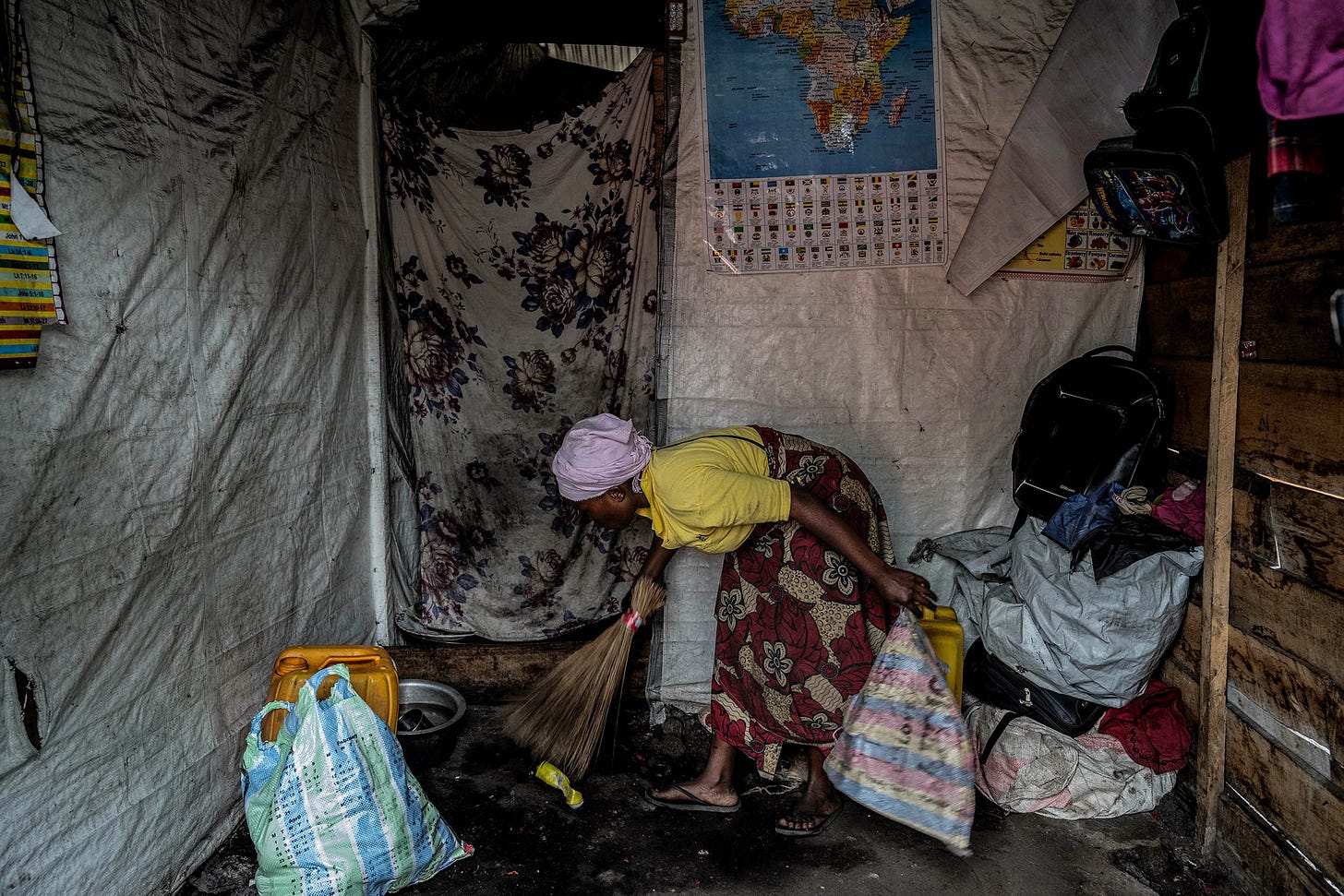
The lack of cash is having immediate consequences for Louise Ishimwe her family, who live in Gisenyi. She brings vegetables to sell in Goma, but no one has any money to buy them. “We bring products here, but we don’t earn anything,” she says. “I don’t know why there isn’t any no money in the Goma market. We’re living badly because of this and lack of money. I can’t send my children to school because of how things are now.”
Small-scale women traders have always played a vital role in the local cross-border economy. But in the current political and economic instability, when many men are facing unemployment, these working women hold the key to the city’s economic recovery.
According to Dieumerci Munguiko, a Goma-based economic analyst: “Many women are carrying several burdens in their families these days. They easily enter Rwanda to fend for themselves. Unfortunately, the current economic situation in Goma is challenging them.”

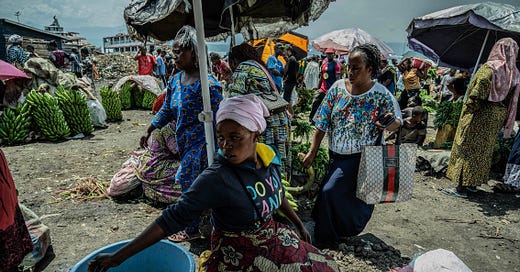



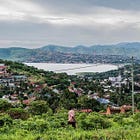
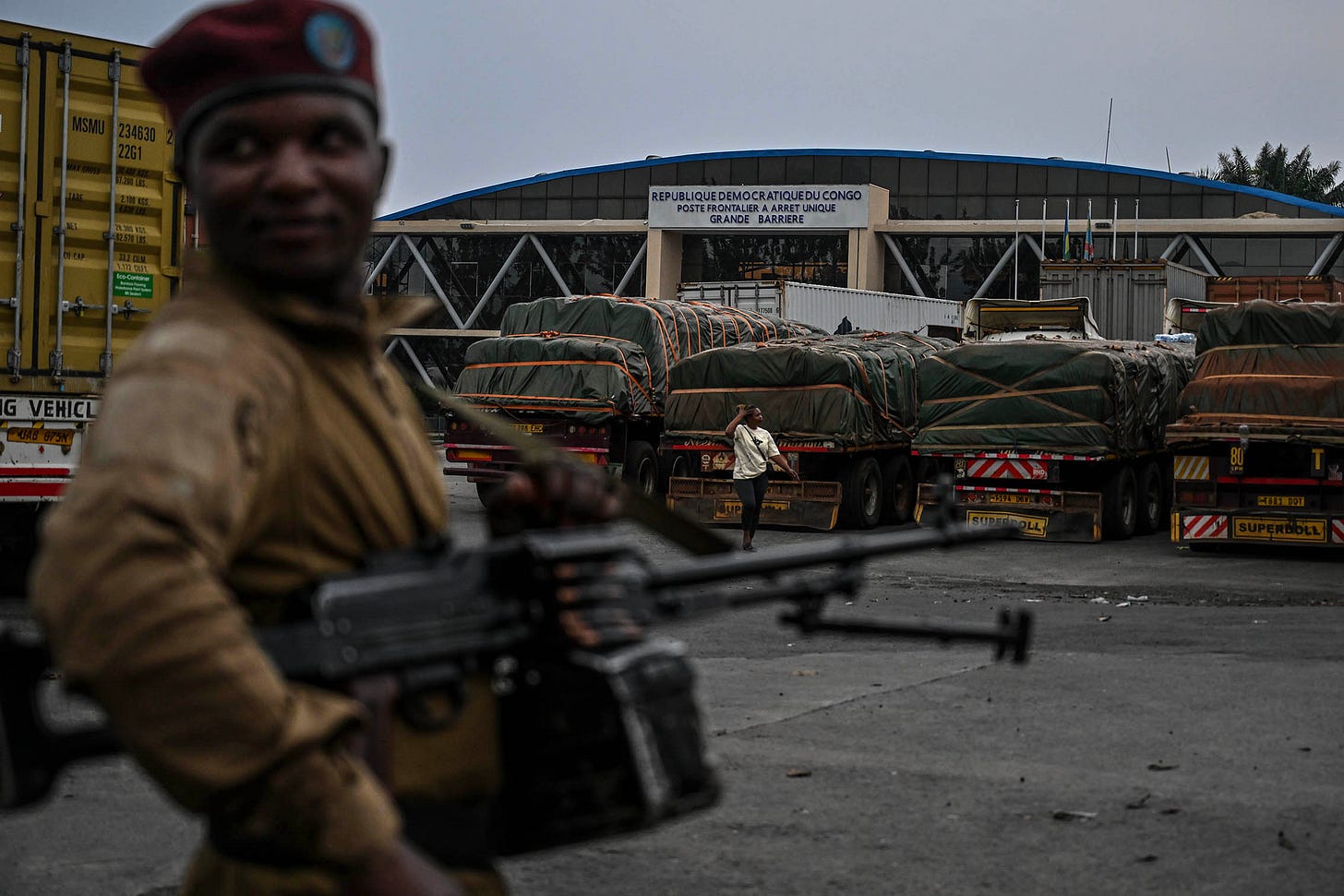
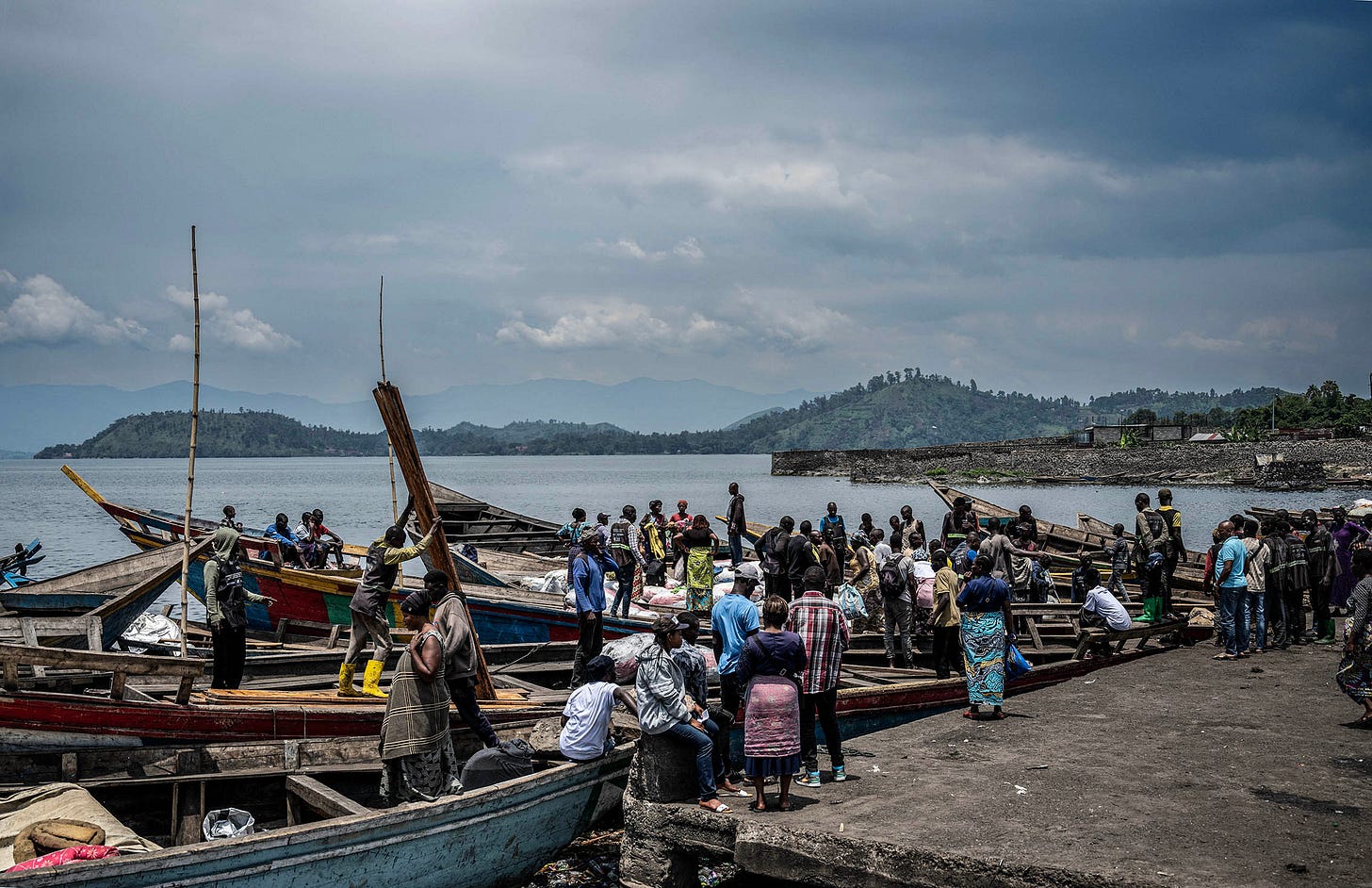
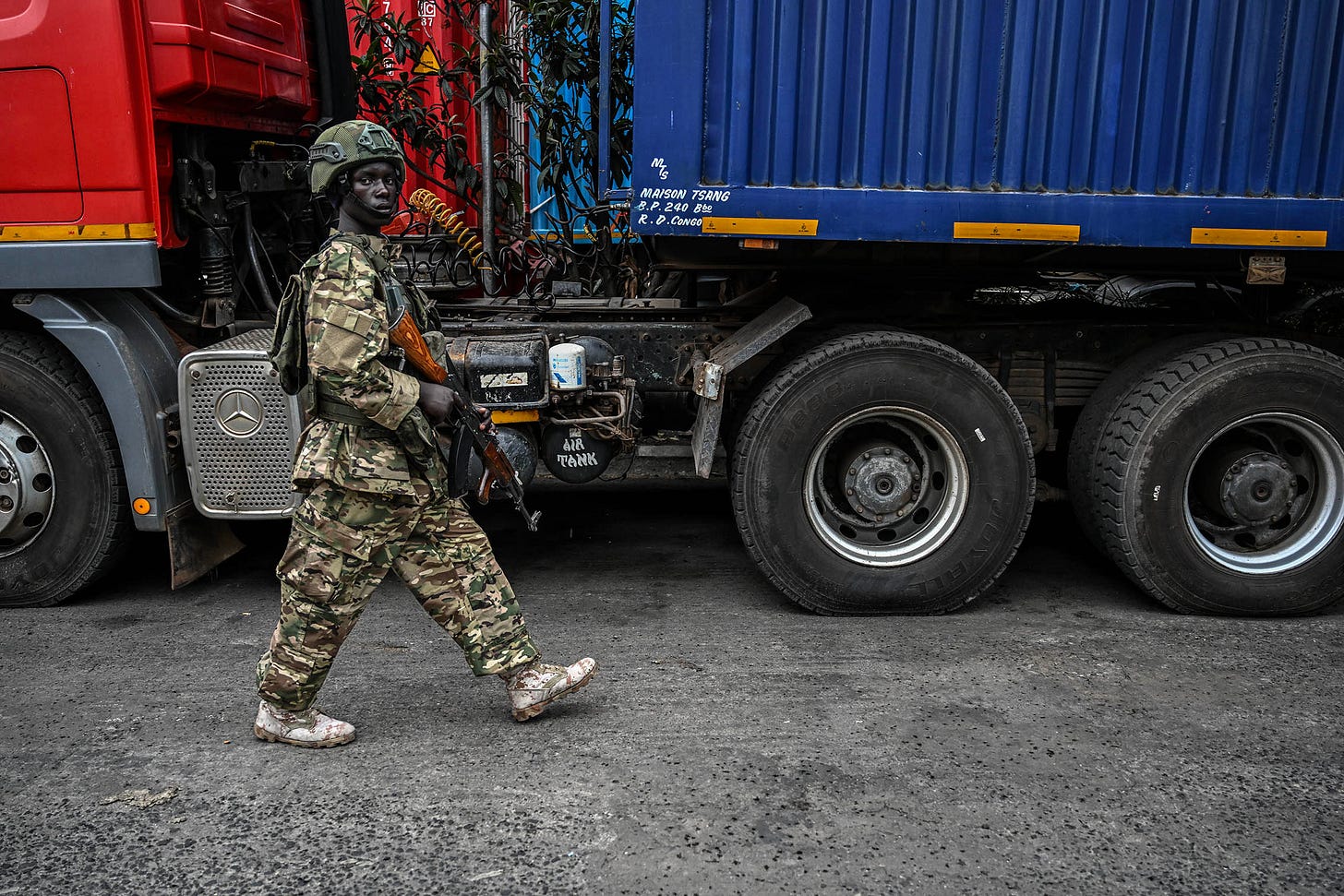
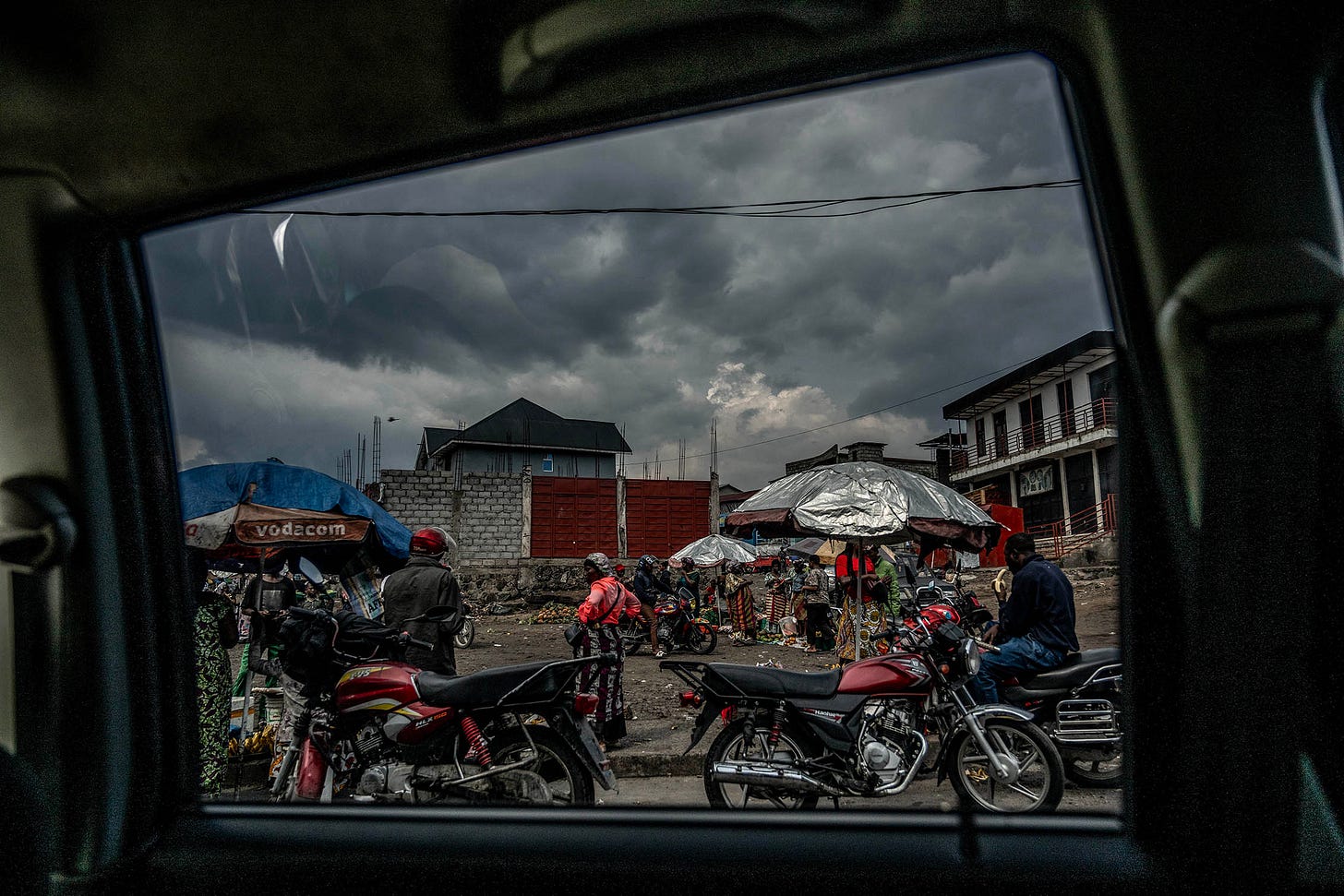
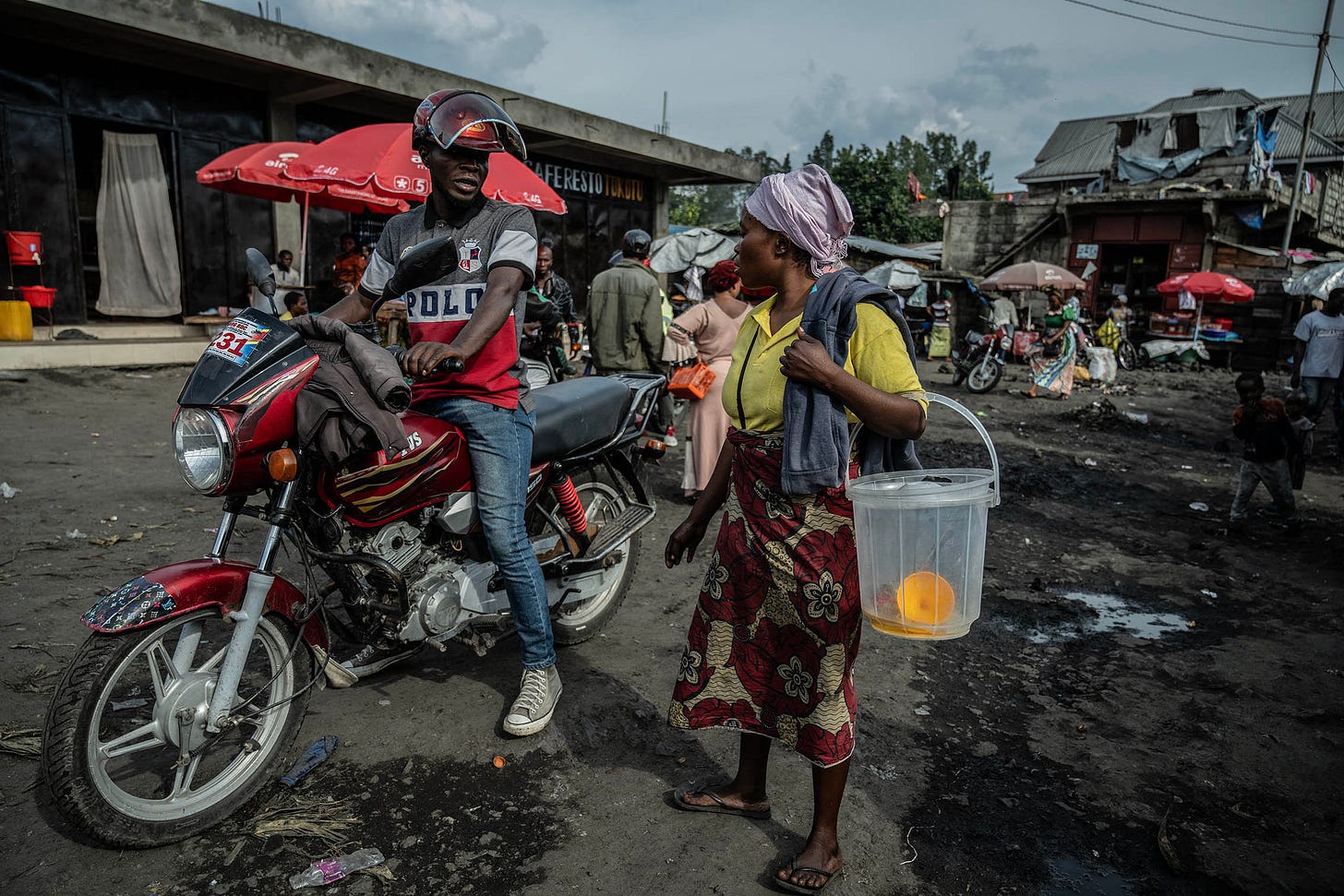
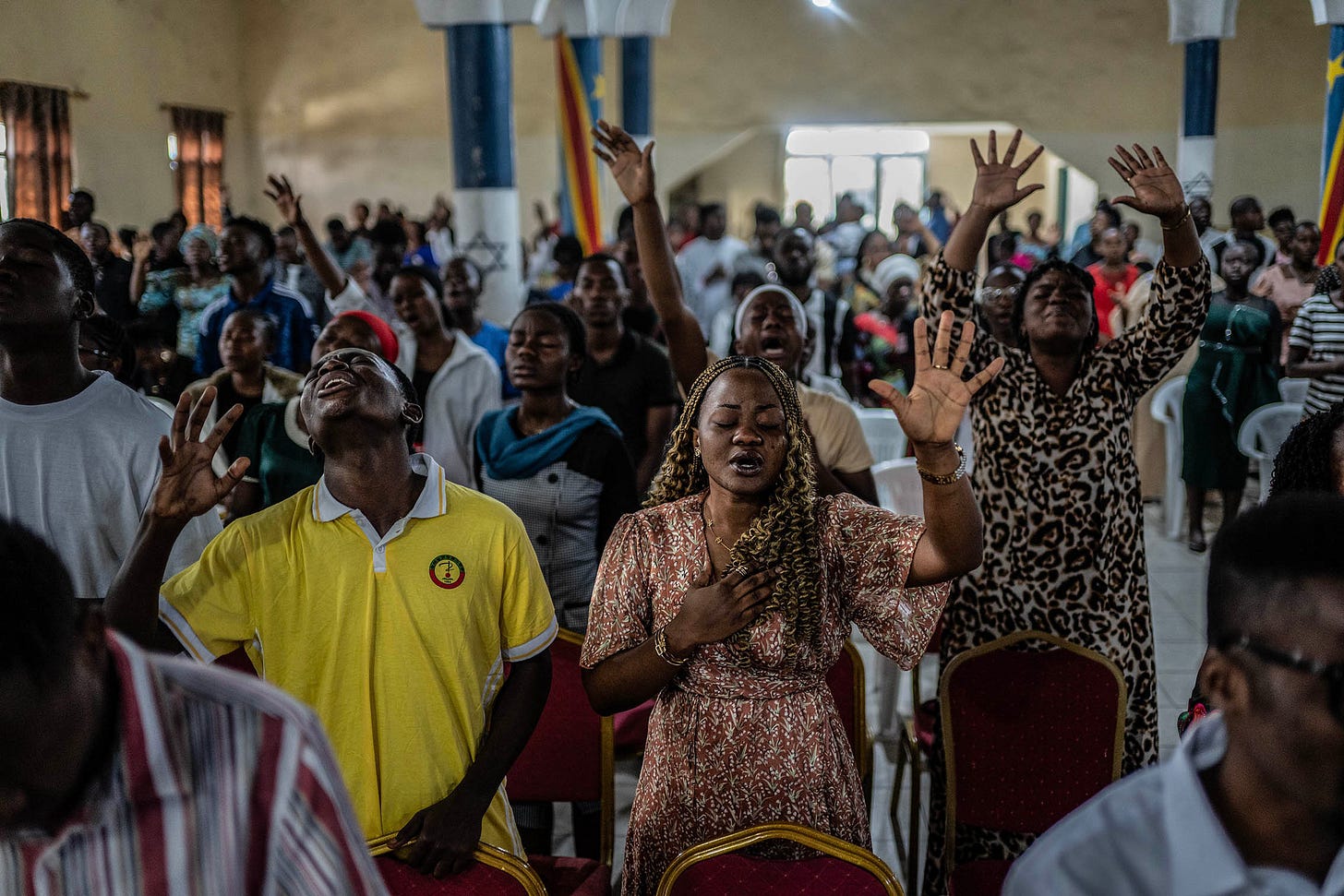
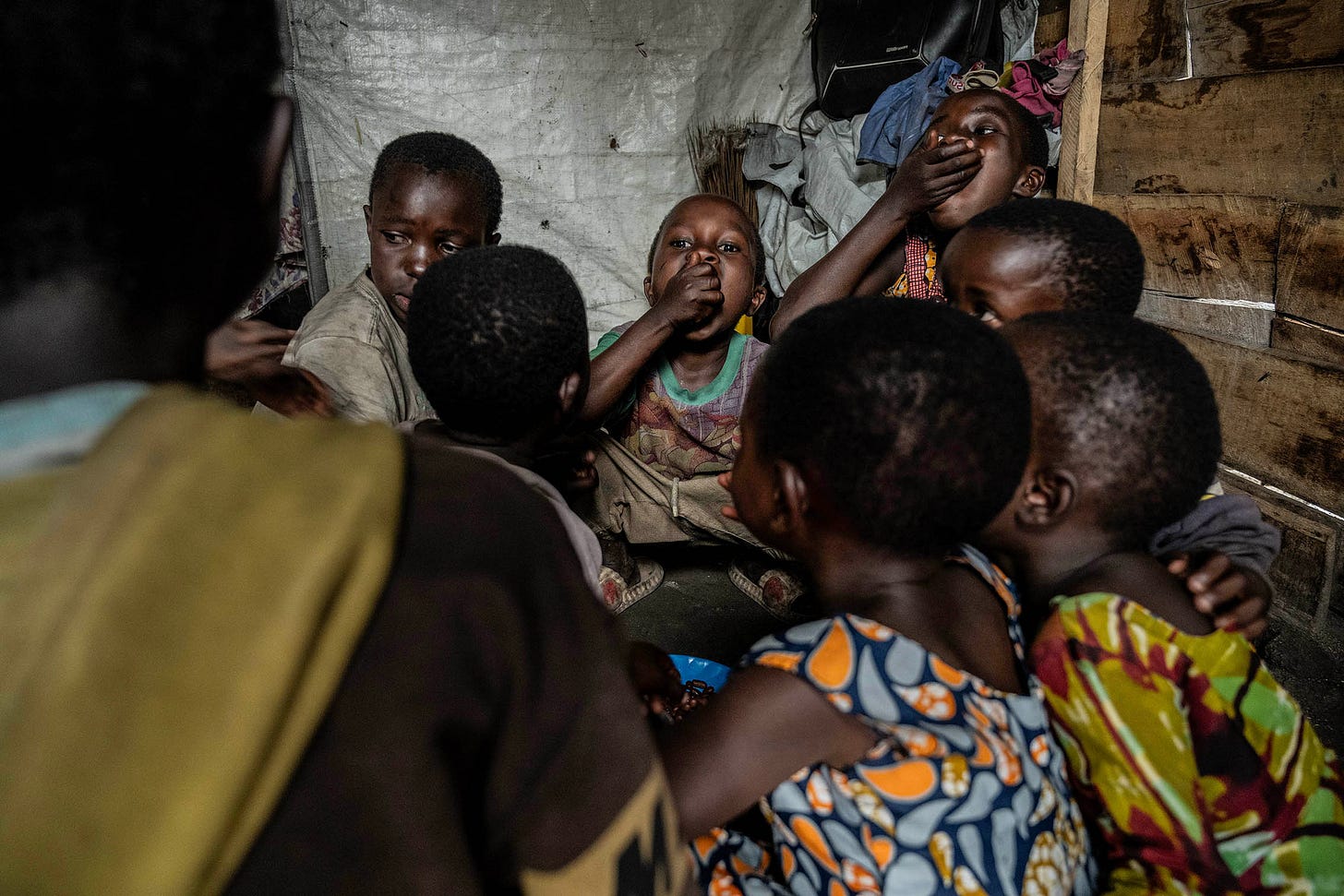
Thank you for sharing this report featuring women business owners. These are the kinds of stories we don't get to read in mainstream media. Appreciate you and the reporters on the ground!